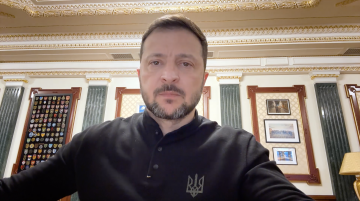The war of the Russian Federation against Ukraine has already become the most technologically dense in history, which is why sanctions and other decisions are so necessary to weaken the military and economic potential of the aggressor. An independent group of international experts on sanctions against Russia has developed a detailed document that lists all the IT technologies that should be taken away from the criminal regime.
Head of the Office of the President of Ukraine Andriy Yermak emphasizes: "Despite the fact that many countries that have introduced sanctions have imposed restrictions on the sale of military components and auxiliary systems to Russia, foreign software, services, technical infrastructure, intellectual property and other less tangible objects are not yet subject to sanctions or restrictions. That is why our expert group took up this issue and offers specific effective measures."
Information and communications technology, microelectronics and intellectual property (hereafter “IT”) currently underpin Russia’s military, militaryindustrial complex, and government more generally. The enemy relies on foreign IT to command and control its military, fire its weapons, perform reconnaissance, control the information space, attack Ukrainian cyber and civilian infrastructure, and protect its own infrastructure. Foreign technology used by Russia includes everything from advanced email servers, network management capabilities, smart devices, SaaS applications, video streaming all the way to Computer Aided Design and Manufacturing (CAD/CAM) and Building Information Modelling (BIM), engineering design, manufacturing, and simulation software, as well as robotic components and device controllers.
Since invading Ukraine on February 24, 2022, the Russian government has tried to requisition foreign IT and microelectronics components from consumer products for use by its military. As a result, there is no clear distinction between IT goods and services delivered to Russia for “civilian” use and those that are being repurposed for military use against Ukraine. Foreign IT is enabling Russia’s war machine and its propaganda machine.
Companies within sanctioning nations have been largely left to decide whether to continue operating in Russia and how to alter their Russian operations. This leaves a potentially wide gap between the intent to impose sanctions on countries and the activities of IT companies under their jurisdiction.
The Russian government maintains many of its own technology and software systems in order to secure communications, spoof radar, GPS, and AIS signals, intercept and interfere with radio and satellite systems, filter internet traffic, and perform a variety of signal processing tasks. These systems are often a patchwork of outdated technology packages mixed with modern state-of-the art capabilities. Such systems rely on fragile human knowledge networks in the case of problems. Small perturbations to these systems can have outsized impacts. As such, IT personnel are a critical asset to the Russian government, one that is currently directly and indirectly supporting Russia’s war on Ukraine.
Hence, the sale and maintenance of IT technology and related capabilities to any entity within Russia, whether directly or indirectly, should cease immediately.
This document provides an analysis of the areas that should be immediately sanctioned, how to do so, and how the corresponding technologies support Russia’s war infrastructure and military operations in Ukraine.
This paper recommends that concerned governments and IT companies take immediate measures to:
- Block access to IT that supports Russia’s war machine and its use against Ukraine. Russian munitions, missiles, guidance systems, artillery, defensive weaponry, and a range of heavy equipment, tanks, submersible vessels, etc., all rely on components or manufacturing techniques that are not directly owned by Russia.
- Block access to IT that enables Russia’s information and cyber warfare against Ukraine and others. Social networks, advertising networks, traditional media, and strategically timed propaganda campaigns against key political figures in Ukraine, sanctioning nations, and the Russian opposition form part of a programme to continuously and comprehensively manage public opinion, sow confusion, and warp public messaging to Russia’s advantage.
According to Andriy Yermak, who is the co-chair of this working group, tough IT sanctions will be a serious obstacle both to the Russian military machine in its operations against Ukraine, and to Russia's ability to use its information machine against Ukraine, the West and the Russian population.
The main recommendation of the document is a call to block the possibility for the Russian Federation to use or receive IT that contain software, firmware and components that were produced by any country that imposed sanctions.



